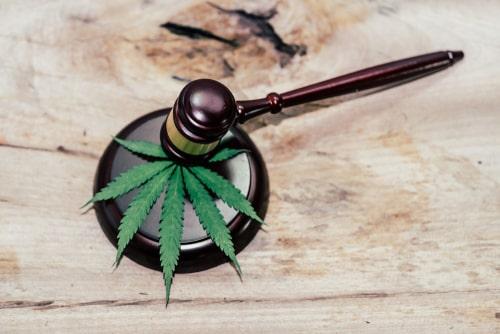Recent Blog Posts
When Can a Criminal Record Be Expunged or Sealed in Illinois?
 A criminal record can have a significant impact on your life, limiting your opportunities and casting a shadow on your past. Fortunately, in Illinois, certain individuals may have the opportunity to expunge or seal their criminal records, providing them with a fresh start and possibilities for a brighter future. By understanding the processes, requirements, and legal aspects of expungement and sealing of criminal records in Illinois, you can take steps to clear your record and move forward with your life.
A criminal record can have a significant impact on your life, limiting your opportunities and casting a shadow on your past. Fortunately, in Illinois, certain individuals may have the opportunity to expunge or seal their criminal records, providing them with a fresh start and possibilities for a brighter future. By understanding the processes, requirements, and legal aspects of expungement and sealing of criminal records in Illinois, you can take steps to clear your record and move forward with your life.
Understanding the Difference Between Expungement and Sealing
Expungement and sealing are two distinct legal options that can offer relief to those with criminal records. Expungement is the process of completely erasing a criminal record as if it never existed. This means that the record will be physically destroyed, and any electronic records will be deleted. On the other hand, a criminal record that is sealed will be confidential and will not be available to the general public. However, it may still be accessed by law enforcement, the court system, and certain licensing agencies or employers. Though it will not be entirely erased, having a criminal record sealed can still provide considerable benefits in terms of future opportunities.
What Are the Penalties for Assault and Aggravated Assault in Illinois?
 There are a variety of situations where a person may potentially face assault charges. These types of charges may stem from disagreements or altercations, or they may be related to accusations of domestic violence. In some cases, aggravated assault charges may apply depending on the identity of the alleged victim, the location of the incident, or other factors. If you have been charged with assault or aggravated assault in Illinois, it is important to understand the possible penalties you may be facing. With the help of a criminal defense attorney, you can determine your legal options for defending against these charges.
There are a variety of situations where a person may potentially face assault charges. These types of charges may stem from disagreements or altercations, or they may be related to accusations of domestic violence. In some cases, aggravated assault charges may apply depending on the identity of the alleged victim, the location of the incident, or other factors. If you have been charged with assault or aggravated assault in Illinois, it is important to understand the possible penalties you may be facing. With the help of a criminal defense attorney, you can determine your legal options for defending against these charges.
What Is Assault?
The phrase "assault and battery" is often used in situations where a person is accused of assault. While these two terms may seem to describe the same types of activities, they actually describe two separate offenses. Illinois law defines battery as knowingly inflicting a physical injury on someone else or making physical contact with a person in a way that is considered to be insulting or provocative. Assault, on the other hand, is defined as acting in a way that causes a person to reasonably fear that they will suffer battery.
Understanding the Right to Remain Silent in Criminal Cases
 Nearly everyone is familiar with the right to remain silent that applies to people who are questioned by police officers after being arrested. Countless TV shows and movies have depicted offers stating that "You have the right to remain silent, and anything you say can and will be used against you in a court of law." However, people may not fully understand how this right applies to them, and as a result, they may choose to waive their rights and make statements to police officers that could lead to serious consequences. By understanding the steps you can take to avoid incriminating yourself, you can make sure your rights will be protected during a criminal case.
Nearly everyone is familiar with the right to remain silent that applies to people who are questioned by police officers after being arrested. Countless TV shows and movies have depicted offers stating that "You have the right to remain silent, and anything you say can and will be used against you in a court of law." However, people may not fully understand how this right applies to them, and as a result, they may choose to waive their rights and make statements to police officers that could lead to serious consequences. By understanding the steps you can take to avoid incriminating yourself, you can make sure your rights will be protected during a criminal case.
The Importance of Attorney Representation When Interacting With Law Enforcement
The familiar "Miranda warning" will generally be read to a person when they are arrested, and it informs them that they do not have to speak to police officers when being interrogated. It also informs them that they have the right to have an attorney present during questioning. This warning is used to ensure that people understand their rights under the Fifth Amendment, which protects against self-incrimination.
You Can Still Get in Trouble for Selling Marijuana in Illinois
 As laws all over the United States regulating marijuana become more permissive, it can be difficult to know what is legal and what is not. This is especially true because marijuana still remains illegal on the federal level. While people can buy, possess, and even grow certain amounts of marijuana illegally in Illinois, there are still consequences for doing these actions in the wrong way or in the wrong amounts - and privately selling marijuana still remains completely illegal.
As laws all over the United States regulating marijuana become more permissive, it can be difficult to know what is legal and what is not. This is especially true because marijuana still remains illegal on the federal level. While people can buy, possess, and even grow certain amounts of marijuana illegally in Illinois, there are still consequences for doing these actions in the wrong way or in the wrong amounts - and privately selling marijuana still remains completely illegal.
If you have been arrested for selling or possessing marijuana with the intent to sell, you might be tempted to think prosecutors will not pursue marijuana-related crimes seriously. This would be a mistake. To learn about how being convicted for distributing marijuana could affect your future, read on and then contact an Illinois criminal defense attorney for help with your case.
How Can I Get My Illinois Juvenile Record Expunged?
 One of the common difficulties of parenting is managing the unpredictable behavior of children whose brains have not yet finished developing. Teenagers are more likely to engage in behaviors that can get them in trouble with the law, even without intending to. So what happens when a good kid makes a mistake and gets caught up in the juvenile criminal justice system? Is it possible for him or her to have a second chance via record expungement? Fortunately, this is often an option for young adults who are seeking a fresh start. With the help of a good Illinois juvenile criminal defense attorney, your child may be able to clear their name and their criminal record.
One of the common difficulties of parenting is managing the unpredictable behavior of children whose brains have not yet finished developing. Teenagers are more likely to engage in behaviors that can get them in trouble with the law, even without intending to. So what happens when a good kid makes a mistake and gets caught up in the juvenile criminal justice system? Is it possible for him or her to have a second chance via record expungement? Fortunately, this is often an option for young adults who are seeking a fresh start. With the help of a good Illinois juvenile criminal defense attorney, your child may be able to clear their name and their criminal record.
Illinois Has Automatic Expungement for Certain Police Interactions
The first thing to know about getting a juvenile criminal record expunged in Illinois is that certain arrests or police contact records are eligible for automatic expungement on or before January 1st of each year. If a child under 18 was arrested, expungement may be automatic - save for certain exceptions. Expungement of a criminal record occurs if the following conditions are met:
Will My Child Get in Trouble for Making Prank Threats Against His School?
 Schools all over the nation are dealing with a tragic uptick in fatal shooting events. But lurking under the surface of real threats is another, lesser-known phenomenon: Teens who make prank calls about bombs and shootings to their school or peers. Sometimes, in an eagerness to prove they are trying to do something to stem the flow of school threats, police and school administrators will take action even against kids whose unrelated statements or actions are obliquely interpreted to constitute a potential threat.
Schools all over the nation are dealing with a tragic uptick in fatal shooting events. But lurking under the surface of real threats is another, lesser-known phenomenon: Teens who make prank calls about bombs and shootings to their school or peers. Sometimes, in an eagerness to prove they are trying to do something to stem the flow of school threats, police and school administrators will take action even against kids whose unrelated statements or actions are obliquely interpreted to constitute a potential threat.
Whether your child is in trouble for making a hoax threat or for simply saying something that got misinterpreted, understand that there will likely be consequences from officials trying to make an example out of one child in order to reassure a troubled public. Getting help from a juvenile defense attorney as soon as you find out your child is in trouble can help your child secure the best chance of fighting against any charges against him.
New Illinois Retail Theft Law Now in Place
 A new law went into place on January 1, 2023 in response to a major increase in retail theft across Illinois in recent years, particularly in Chicago’s downtown areas. This law, known as the INFORM Act, changes the former criminal law code to create a new category of theft called “organized retail theft.” This bill focuses on groups of people working together in an organized fashion to move quickly and steal large, valuable amounts of goods. If you have been charged with this organized retail theft, it is important to know the penalties you could be facing and how to fight the charges.
A new law went into place on January 1, 2023 in response to a major increase in retail theft across Illinois in recent years, particularly in Chicago’s downtown areas. This law, known as the INFORM Act, changes the former criminal law code to create a new category of theft called “organized retail theft.” This bill focuses on groups of people working together in an organized fashion to move quickly and steal large, valuable amounts of goods. If you have been charged with this organized retail theft, it is important to know the penalties you could be facing and how to fight the charges.
Organized Retail Theft Bill Increases to Class 3 Felony Offense
In an effort to crack down on organized retail theft, special task forces have been put in place. In December alone, millions of dollars of stolen goods were recovered from storage units in Chicago. Police are actively monitoring surveillance footage, online third-party selling platforms, and any other source of information on stolen and resold goods.
K2, Spice and other synthetic drugs gain popularity in Chicago
Many people don’t realize that synthetic drugs, like K2, spice and bath salts, are illegal. Synthetic or manufactured drugs are easily available for purchase. Because you can buy these substances online and even in some head shops around Chicago, it is no surprise people think they are safe alternatives to illegal drugs.
However, these drugs can be very dangerous, and they can lead to serious criminal charges. You can be prosecuted for possessing, buying or selling synthetic drugs, even if you didn’t know you were doing anything illegal.
Illinois outlawed synthetic drugs in 2011, but they continue to be pretty easy to get your hands on. Earlier this month, The Illinois Poison Center reported a spike in emergency room visits caused by synthetic drug use. Emergency rooms took 20 calls in one week alone linked to synthetic cannabinoids (K2 and spice).
Since synthetic drugs can cause major health complications, including psychosis, seizures and comas, police want to keep them out of the Chicago area. But it isn’t always easy to prove whether someone is on synthetic drugs. The tests that are available are not completely reliable.
Can you afford to get a DUI in Illinois?
Have you been here before? You had one drink, or maybe a few. Some time has gone by and perhaps you had something to eat, so you feel okay to drive. Suddenly lights are flashing behind you and now you’re not okay. How did you get here? Maybe you rolled through a stop sign or ended up at one of Chicago’s DUI checkpoints. Whatever caused the officer to pull you over, he tells you to blow into a Breathalyzer and the next thing you know, you’re accused of driving drunk.
But you hadn’t had much to drink and you didn’t hurt anyone, so what are the costs of a first-time DUI arrest?
About $16,500 if you get convicted, according to the Illinois Secretary of State.
Does this figure seem high to you? There are a lot of expenses that come out of DUI arrests, including court fines and fees; the cost to reinstate your driver’s license; fees to install a breath alcohol ignition interlock device; increased insurance rates and lost wages due to court dates.
Pushing treatment, not time, for drug users
Many people who are arrested for drug crimes end up doing jail time. This typically isn’t what they, or society, needs. At the heart of drug crimes is addiction, and this is the true problem that needs to be addressed.
If you have been arrested for a drug crime in DuPage County or the surrounding areas, drug court might produce the best resolution for you. This can help you kick your addiction and avoid prison time. When is drug court an option?
Drug court may be available to you if you are up against a nonviolent criminal charge related to drug or alcohol addiction. An experienced criminal defense attorney can work to help you get into drug court or an alternative program. These programs offer people the tools to get their lives back on track, including:
- Counseling
- Treatment and rehabilitation
- Court monitoring
- Drug screens














